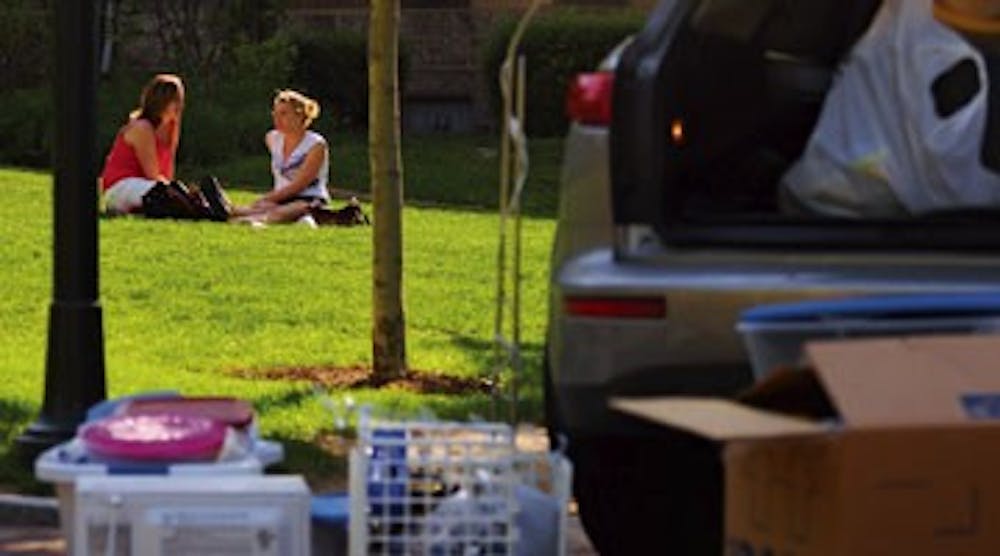
The rippling effects of the current economic recession have surfaced at Penn again, this time to the benefit of summer session enrollment.
According to Nora Lewis, director of enrollment management for the College of Liberal and Professional Studies, overall Penn undergraduate enrollment is up 9 percent this year.
The College showed the highest increase in enrollment of all four schools, with a 13 percent jump. In addition, the 12-week evening course session, which accommodates students who work during the day, has seen a 63 percent increase in Penn undergraduate registration.
"The recent economic downturn has certainly had an effect on applicants to our summer programs this year," Lewis confirmed. "Many of our applicants have been laid off, or are thinking of making themselves stronger competitors in this tight job market, and many are having to work at the same time," she said.
Housed within the School of Arts and Sciences, LPS holds classes designed for adult students over the age of 21, and coordinates both six-week summer sessions, as well as the twelve-week evening course summer program.
According to the LPS Web site, total tuition for a 12-week course credit is $2,337. For a six-week Undergraduate Arts and Sciences course, one credit is $3,169.
The 12-week session costs approximately $800 less this summer, which could explain the jump in enrollment.
LPS is also offering eight online courses this summer, compared with three in 2008, as options for students who cannot attend classes in person. "We have tried to expand our online program to accommodate those who cannot stay here, or who need jobs," Lewis said.
The deadline for applications and enrollment to the summer programs is today, so official statistics are not complete yet. However, according to Lewis, rough estimates show that although Penn student enrollment has spiked, total LPS enrollment - including summer applicants from other universities, post-baccalaureate students, or adults in the area wishing to re-enter education - seems to have remained stable.
The causality of these figures is not clear, but Lewis suggested, based on anecdotal experience and the high cost of a Penn education, perhaps there is a balancing of forces.
Those who may need education to repackage themselves as more viable candidates see schooling as a necessary career investment. At the same time, others who still have jobs may be scaling back on surplus educational spending. The loss of the second variety of students may be countered by the enrollment of the first.
Many undergraduate students are feeling the brunt of scant hiring opportunities this summer, and admit to turning to summer studies as an alternative.
College senior Akpo Omene explains that, "I'm only still here at Penn because the job market was completely useless." Omene had secured a job at the Bank of New York Mellon, but his acceptance was rescinded suddenly five weeks ago when the company decided to cut costs and downgrade someone already employed at bank instead of hiring someone new.
As a result, Omene is taking summer courses at Penn, adding two minors, and concentrating on improving his grades to be a stronger candidate for graduate school and job applications.
College junior Alyssa Kosturakis wanted to do research abroad this year in Guatemala with the same program she worked at last summer, Guatemala Health Initiative. But due to recession cutbacks, this year the program did not receive its funding.
Kosturakis applied for various CURF grants to pursue her anthropological studies in Guatemala independently, but was denied due to limited funds. "I am studying this summer to get some requirements out of the way while I work in a lab here, but only because my other plans were constrained by the economy this year," she said.
In each case, students say, their families viewed the expense of summer courses as a worthwhile investment toward developing their current education and enhancing their future job applications.
The Daily Pennsylvanian is an independent, student-run newspaper. Please consider making a donation to support the coverage that shapes the University. Your generosity ensures a future of strong journalism at Penn.
DonatePlease note All comments are eligible for publication in The Daily Pennsylvanian.








